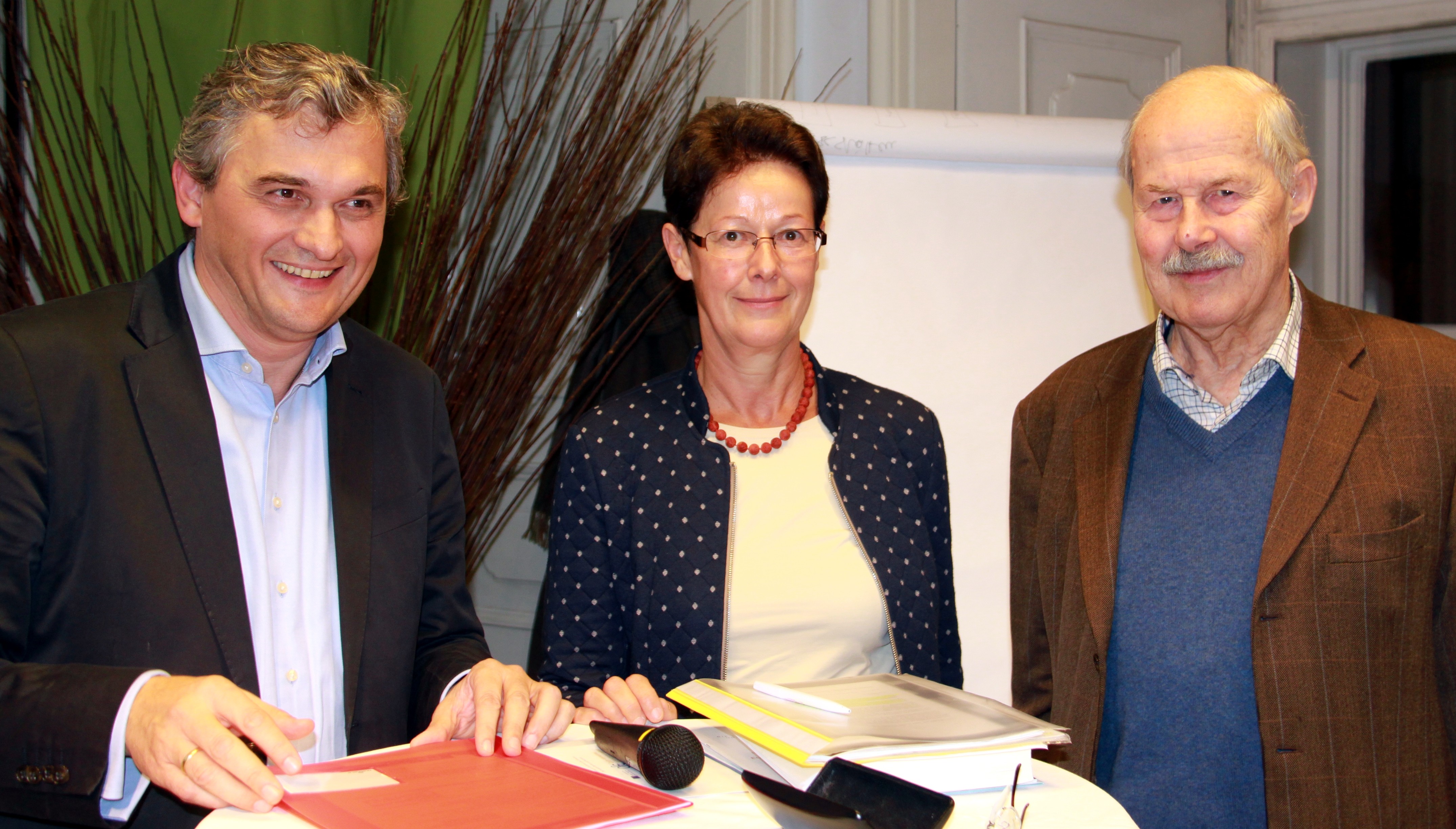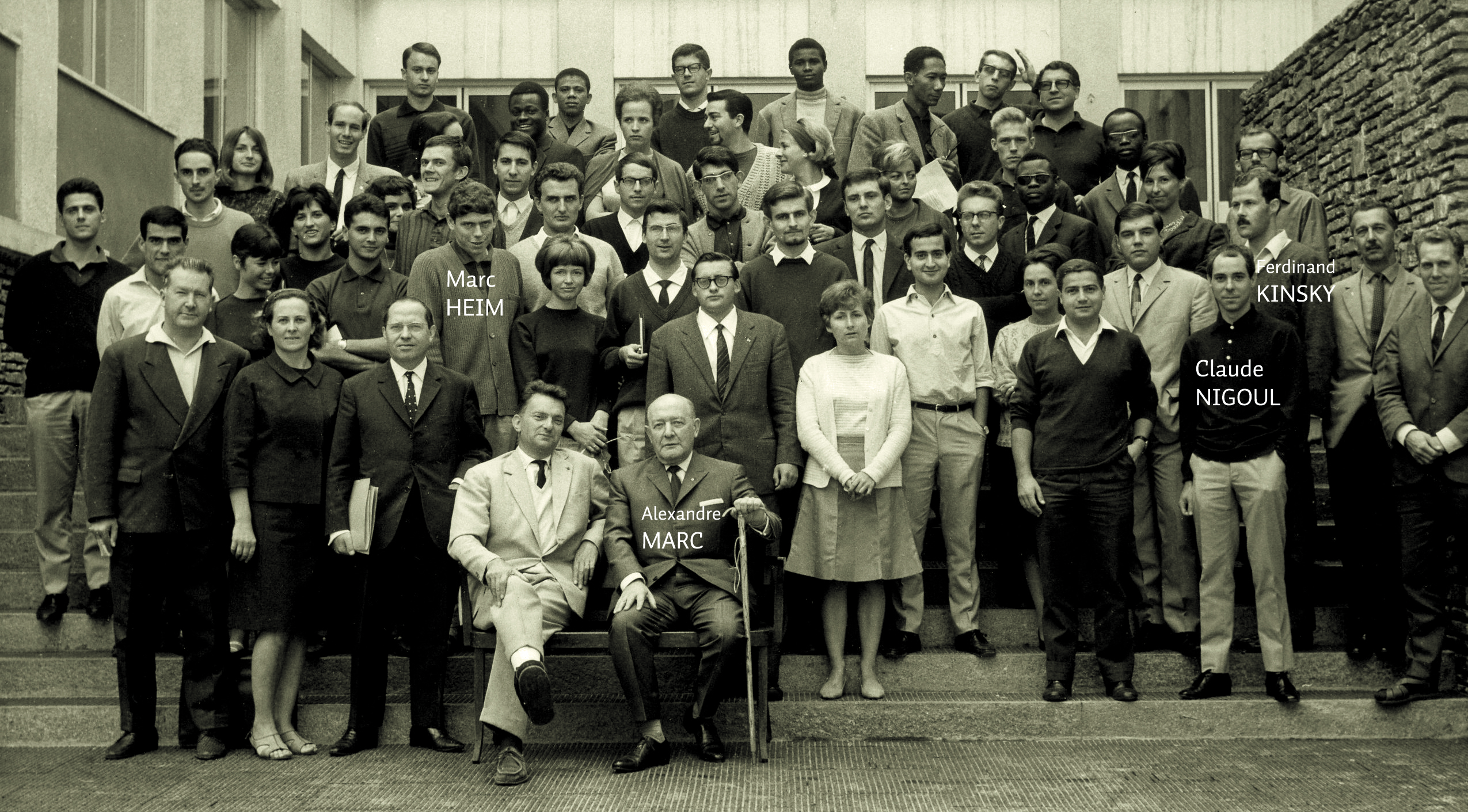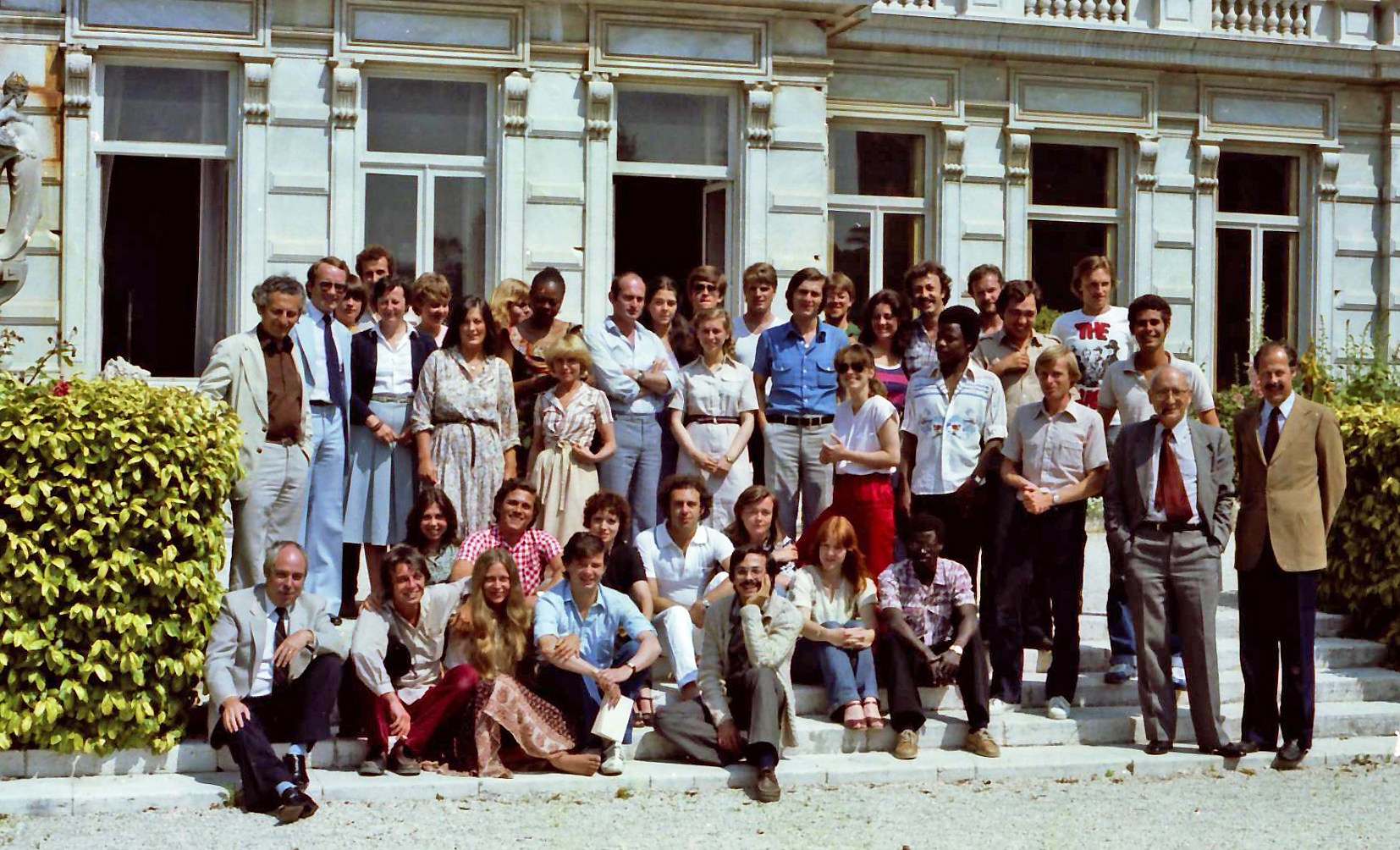En mémoire de Ferdinand Kinsky
(English translation below)
Nous avons la tristesse de vous informer du décès de notre ami Ferdinand Kinsky, survenu à Vienne (Autriche) le dimanche 22 novembre des suites de la covid 19.
Après des études de science politique et de sociologie à l’université de Munich puis à celle de Francfort (ou il avait été l’élève d’Adorno, ce dont il tirait une grande fierté), Ferdinand avait rejoint le CIFE en 1964, à la suite de sa rencontre avec Alexandre Marc, lors d’un stage de formation européenne organisé par celui-ci. Dès l’année suivante, il rejoignait Nice où venait d’être créé l’Institut européen des hautes études internationales dont il sera, jusqu’à sa retraite, un des enseignants réguliers et des principaux animateurs. Invité en 1969 comme professeur associé à l’université de l’Indiana, il allait, à son retour, accéder à la direction générale du CIFE à la demande d’Alexandre Marc qui l’avait choisi pour lui succéder.
Dans ce poste qu’il occupa pendant prés d’un quart de siècle, il s’attacha inlassablement à développer le CIFE et à consolider les liens naturels établis, depuis l’origine de l’organisme en 1954, avec les institutions européennes. Il s’employa en particulier à renforcer la coopération avec l’Allemagne et à faire entrer le CIFE dans le cercle restreint des établissements d’enseignement supérieur reconnus par Bruxelles et bénéficiant, à ce titre, du soutien régulier de la Commission européenne.

Ferdinand Kinsky dans son élément - les étudiants s'en souviennent comme un orateur doué.
Au cours de cette période marquée par les événements considérables que furent l’effondrement du communisme soviétique, la chute du mur de Berlin et la libération des pays d’Europe centrale et orientale, il eut la grande joie de pouvoir revenir en République tchèque, et à Horazdovice, berceau de sa famille et où il était né. Nommé professeur à l’université d’Europe centrale à Prague, il continua néanmoins à occuper ses fonctions à la tête du CIFE et à y dispenser ses enseignements centrés sur la construction européenne et le fédéralisme personnaliste.
Mais Ferdinand était bien plus qu’un dirigeant responsable et un enseignant écouté, et l’amitié prescrit maintenant de rendre hommage à l’homme qu’il fut ou, plus exactement, à la personne que tout au long de sa vie, il s’est attaché à devenir.
Ferdinand était européen et fédéraliste.
Européen, il l’était de conviction, et les nombreux livres et articles qu’il a consacrés aux péripéties de l’aventure d’une unité européenne toujours à construire en témoignent abondamment.
Mais, avant tout, il l’était de constitution.

Ferdinand Kinsky à Vienne, où il avait créé le cours CIFE "Europe" avec le Figlhaus de Vienne. Sur la photo on le voit à côté de Helgard Fröhlich, alors directrice du CIFE à Berlin, et Otto Neubauer, directeur du Figlhaus.
Ferdinand, comte Kinsky von Wchinitz und Tettau, était un aristocrate. Et de la plus haute et plus ancienne lignée. Ses quartiers de noblesse remontent à la nuit des temps et sa famille, dès le XIIe siècle, n’a cessé de marquer l’histoire européenne, du Royaume de Bohème à l’ Empire austro-hongrois en passant par le Saint Empire romain germanique. Politiquement d’abord, mais aussi culturellement, et il aimait rappeler qu’elle avait été protectrice de Beethoven ou que son aïeule, Bertha von Suttner, née Kinsky, avait été la première femme prix Nobel de la Paix. Difficile, avec une telle hérédité, de ne pas prôner une unité dont la longue théorie des générations précédentes avait été témoin et acteur. Mais à ce patrimoine déterminant, les tragédies du XXe siècle allaient apporter la vérification d’une expérience charnelle. Fuyant nazisme et communisme, Ferdinand connut trois passeports : le tchèque, l’allemand et l’autrichien, et son cœur ne pouvait que balancer entre ces trois allégeances auxquelles vint s’ajouter celle de la France acquise par les quarante cinq années de sa vie qu’il avait passées à Nice avec son épouse, Edwige von Ballestrem, et leurs enfants.
Fédéraliste, il le devint par sa rencontre avec Alexandre Marc. Dans l’enseignement de la doctrine du fédéralisme global qu’il en reçut, il avait trouvé une réponse à ses deux préoccupations politique et sociale majeures : celle d’une Europe réalisant le rêve impérial de l’unité et de la diversité, et celle de son incarnation dans une société plus libre et plus juste. Car il ne correspondait nullement à la caricature convenue de l’aristocrate telle que la pensée dominante s’est, depuis longtemps, attachée à dessiner les traits : il avait en lui un profond et sincère désir de justice et de protection des plus faibles qu’il puisait, notamment, dans sa foi catholique pratiquée et assumée même si, parfois, dissidente. Avant tout, il se voulait personnaliste, trouvant dans le fédéralisme l’équilibre nécessaire entre la tradition et la modernité, l’engagement au service de ses convictions et le dépassement dans la quête du perfectionnement.
Cela se traduisait – et tous ceux qui l’ont approché ou, mieux encore, connu en amitié – peuvent en témoigner, par un ensemble de ces qualités que l’on appelle humaines et que sont l’affabilité, la modestie, la disponibilité au service des autres et, aussi, le sens du sacrifice.
Ferdinand était un aristocrate : aristocrate du cœur ; aristocrate de l’esprit.
Qu’il repose en paix, lui qui avait connu l’épreuve terrible de la perte de deux de ses enfants mais qui, à la lumière de sa foi, considérait la mort comme une re-naissance.
Claude Nigoul, ancien Directeur de l'Institut européen des hautes études internationales (IEHEI)

L'académie d'été du CIFE à Aoste. En haut à droite Ferdinand Kinsky, au milieu, assis, Alexandre Marc.

L'equipe enseignante du CIFE et les étudiants sur les marches du Palais de Marbre, ancien siège du CIFE.
In memory of Ferdinand Kinsky (English translation)
It is with great sadness that we inform you of the death of our friend Ferdinand Kinsky on Sunday 22 November in Vienna (Austria) as a result of Covid-19.
After studying political science and sociology at the University of Munich and the University of Frankfurt (where he had been a student of Adorno, of which he was very proud), Ferdinand joined CIFE in 1964 following a meeting with Alexandre Marc during a European training course organised by the latter. The following year, he moved to Nice, where the Institut européen des hautes études internationales had just been created, and where he would be one of the regular teachers and main instructors until his retirement. Invited in 1969 as an associate professor at the University of Indiana, he returned to take up a post as director general of CIFE, at the request of Alexandre Marc, who had chosen him as his successor. In this position, which he held for almost a quarter of a century, he worked tirelessly to develop CIFE and to consolidate the natural links established with the European institutions since the origins of the organisation in 1954. In particular, he sought to strengthen cooperation with Germany and to bring CIFE into the restricted circle of higher education institutions recognised by Brussels and as such regularly supported by the European Commission. During this period marked by the great events of the collapse of Soviet communism, the fall of the Berlin Wall and the liberation of Central and Eastern European countries, he was very pleased to be able to return to the Czech Republic and to Horazd’ovice, the birthplace of his family and where he was born. Appointed as a professor at the Central European University in Prague, he nevertheless continued to hold his position at the head of CIFE and to teach there, focusing on European integration and personalistic federalism.
But Ferdinand was much more than a responsible leader and a listened-to teacher, and friendship now prescribes paying homage to the man he was, or more precisely, the person he strove to become throughout his life.
Ferdinand was European and a federalist.
He was a convinced European and the many books and articles he wrote about the adventures of European unity still be built bear abundant witness to this.
But, above all, he was constitutionally convinced.
Ferdinand, Count Kinsky von Wchinitz und Tettau, was an aristocrat. And of the highest and oldest lineage. His nobility dates back to the dawn of time and his family, from the 12th century onwards, has left its mark on European history, from the Bohemian Kingdom to the Austro-Hungarian Empire and the Holy Roman Empire. Politically first, but also culturally, and he liked to recall that his family had been Beethoven’s protector or that his grandmother, Bertha von Suttner, née Kinsky, had been the first female Nobel Peace Prize winner. It was difficult with such heredity not to advocate a unity, whose long theory had been witnessed and acted upon by previous generations. But to this decisive heritage, the tragedies of the 20th century were to bring the verification of a carnal experience. Fleeing from Nazism and Communism, Ferdinand possessed three passports: Czech, German and Austrian, and his heart could not help but swing between these three allegiances, to which France was added, acquired during the forty-five years of his life spent in Nice with his wife Edwige von Ballestrem and their children.
He became a federalist through his encounter with Alexandre Marc. In the teaching of the doctrine of federalism that he received, he had found an answer to his two major political and social concerns: that of Europe realising the imperial dream of unity and diversity and that of its incarnation in a freer and fairer society. For he did not correspond to the agreed caricature of the aristocrat as the dominant thought had long since sought to portray: he had a deep and sincere desire for justice and protection of the weakest, which he drew in particular from his practised and assumed Catholic faith, even if it was sometimes dissident. Above all, he wanted to be a personalist, finding in federalism the necessary balance between tradition and modernity, commitment to serving his convictions and surpassing himself in his quest for perfection.
This translated – and all those who approached him, or even better still knew him as a friend, can testify to this – into a set of qualities that we call human and which are affability, modesty, readiness to serve others and also a sense of sacrifice.
Ferdinand was an aristocrat: an aristocrat of the heart and an aristocrat in spirit.
May he rest in peace, he who had known the terrible ordeal of the loss of two of his children but who, in light of his faith, considered death as a rebirth.
Claude Nigoul, Former Director of the Institut européen des hautes études internationales
Novermber 2020